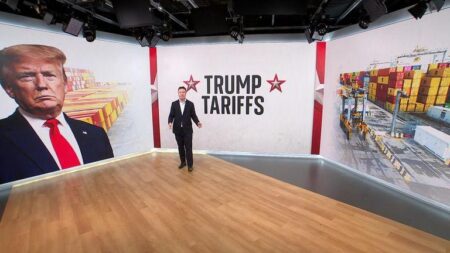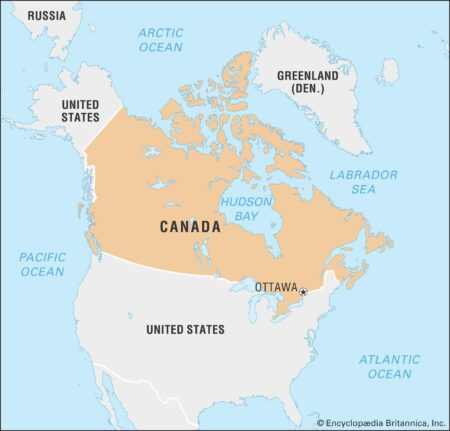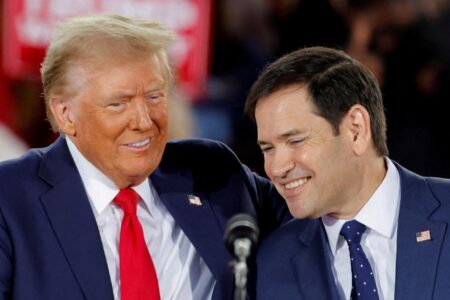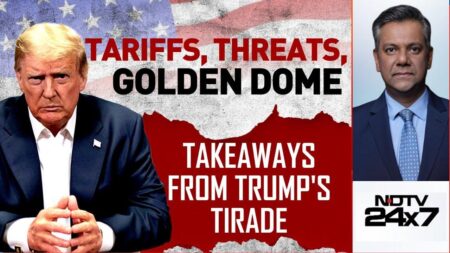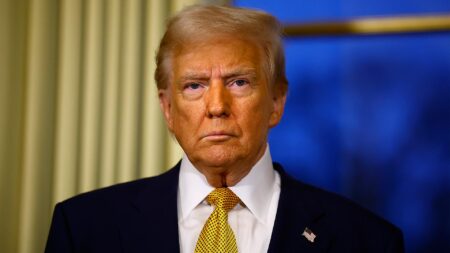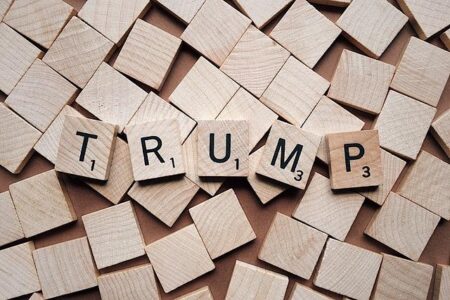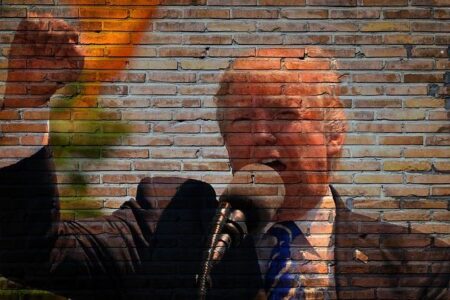As tariff negotiations persist, Canada is positioning itself as a formidable economic player, emphasizing resilience and strategic planning. Officials signal a commitment to long-term trade stability, hinting at a wait-and-see approach in resolving disputes.
Browsing: tariffs
As the U.S. contemplates the continuation of Trump-era tariffs, analysts warn of potential repercussions on its economy, raising concerns over a possible recession. India, heavily reliant on exports, may face ripple effects, prompting urgent evaluations of its trade strategies.
Ontario has announced a 25% tax increase on electricity exports to the U.S., a strategic move in response to escalating trade tensions fueled by Trump’s trade policies. This decision aims to protect local consumers and stabilize the province’s energy market.
In a pivotal move, Donald Trump has pressured India to adjust its tariffs, declaring, “Whatever you charge, I‚Äôm charging.” This ultimatum marks a significant escalation in trade tensions, compelling India to reconsider its economic stance amid global trade negotiations.
In a bold move, former President Donald Trump threatened to impose a staggering 200% tariff on French wine and champagne if he returns to office. This escalation in trade tensions raises concerns over the future of U.S.-France relations and global markets.
Canada has launched a dispute complaint against the United States at the World Trade Organization over tariffs on steel and aluminum. The move underscores ongoing tensions between the two nations regarding trade policies and their economic impacts.
Senator Marco Rubio arrived in Canada for the G7 summit as tensions rise over tariffs between the U.S. and its allies. Discussions are expected to center on trade policies and their economic impacts, highlighting the complexities of international relations.
In response to Trump’s tariffs, a growing “Boycott USA” movement has emerged globally. This backlash reflects discontent among countries impacted by trade barriers, leading to calls for consumers to reject American products in favor of local alternatives.
Germany’s Chancellor Olaf Scholz has welcomed the European Union’s response to newly imposed U.S. tariffs, viewing it as a unified stance that strengthens transatlantic relations. He emphasized the importance of solidarity among EU member states in addressing trade challenges.
In response to the lessons learned from the first trade war initiated by Donald Trump, China has adapted its strategies for navigating tariffs. By diversifying markets and enhancing domestic production, Beijing aims to mitigate the economic impact of renewed trade tensions.
Canada and the European Union have announced retaliatory tariffs in response to recent U.S. trade policies, further escalating tensions in the ongoing trade war initiated by the Trump administration. The new tariffs target key industries, highlighting global trade frictions.
In a significant shift, President Trump has reversed his threat to impose new tariffs on Canada following Ontario’s decision to rescind controversial electricity charges. This move aims to enhance trade relations and ease tensions between the two nations.
In a surprising policy shift, President Trump announced he will not proceed with plans to double tariffs on certain imports from Canada. This reversal comes amid ongoing trade negotiations, signaling a potential thaw in U.S.-Canada relations.
In response to recent U.S. tariffs, Canada has announced $29.8 billion in counter-tariffs targeting key American goods. This escalation in trade tensions underscores ongoing disputes and aims to protect Canadian industries amidst rising economic pressures.
Australia has decided against implementing reciprocal tariffs on the US following President Trump’s announcement of steel tariffs. This response highlights Australia’s commitment to maintaining trade relations, despite the potential economic impact.
As Trump tariffs reshape global trade dynamics, India stands poised to excel in Asia. With a burgeoning domestic market, a strong manufacturing base, and strategic alliances, India is uniquely positioned to leverage these tensions for economic growth and opportunity.
The recent tariff rebuff highlights ongoing tensions in Australia’s handling of relations with the Trump administration. This pivotal moment fuels debates on the government’s trade strategies and diplomatic approach as the international landscape shifts.
In a recent statement, the U.S. criticized Japan’s staggering 700% tariff on rice imports, suggesting potential repercussions. This move highlights ongoing trade tensions between the two nations and raises questions about agricultural policy negotiations.
India is grappling with economic uncertainty as escalating US tariff wars raise global concerns. The increasing trade tensions threaten to disrupt supply chains and impact key sectors, prompting calls for robust policy measures to safeguard India’s growth trajectory.
In a surprising shift, former President Trump announced the reinstatement of 25% tariffs on Canadian metals, reversing previous statements. This move raises concerns about trade relations and could impact various industries reliant on Canadian imports.


